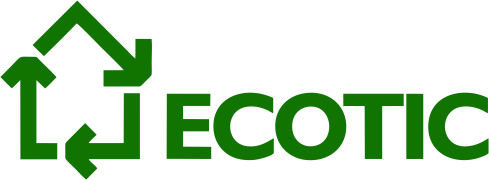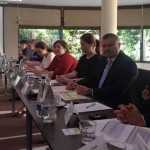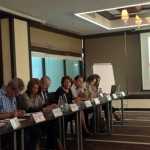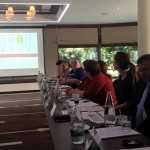On June 11th 2015, ECOTIC took part in the debate "Sectoral Measures and Institutional Obligations for a More Efficient Policy regarding the Separate Collection and Recovery of WEEE", organized at the initiative of the Public Policies Institute (PPI), joined by the RECOLAMP Association.
The purpose of the debate was to bring to the attention of the interested parties - public authorities with competencies in the field, organizations that take over responsibilities and EEE producers - a series of aspects that are now considered a challenge in the WEEE recovery flow and important environmental issue, due to the hazardous substances they contain.
Discussions were focused on 4 major subjects heavily discussed and amended by the participants:
- Transparency, responsibility and competition in WEEE recovery
- The role of associations in making the system more responsible towards the collection / recovery of WEEE
(Case study: lighting equipment)
- The role of competent authorities in raising efficiency for WEEE recovery - lighting equipment
- Main obstacles in reaching collection / valuation targets of lighting equipment - proposals for improvement
The participants formulated a series of proposals regarding aspects considered as main vulnerabilities in the WEEE flows:
- Improving control procedures for the Environment Guard by setting up cooperation protocols with fiscal authorities or the AFM, so as to verify not only the producers '/ collective organizations' reporting, but also the entry data, accounting books, etc. (the same procedure as in waste transfer control, where the Environment Guard and the Customs Police cooperate);
- Setting up an economic instrument - sanction, similar to the one for packaging, for sanctioning producers who do not correctly report marketed EEE quantities; this sanction should have a fixed value per kg. This penalty should also apply to those who do not meet targets assumed in the approved operation plans.
- Control of data regarding marketed EEE reported by producers. Since the collection and recycling target is proportional to this data, some producers may be encouraged to report smaller quantities, in order to have lower targets. But this situation generates “orphan” waste on the market that no one takes responsibility for. Moreover, this situation leads to an unfair market as far as competition is concerned.
- Control of the activities of associations that take responsibility transfer, applying fines to those who do not fulfill legal obligations / do not report correctly / do not reach targets starting with 2016; this will lead to increased collection and the elimination of the current phenomenon that sees organizations that do not collect WEEE at the reported level and have no real costs afford a really small Green Stamp and thus attract producers solely on the basis of the value of the stamp and not their performance.
The event was attended by representatives of the Ministry of the Environment, the National Agency for Environmental Protection, the Environment Guard, the Competition Council, members of Parliament as well as representatives of producers in the field of EEE and of WEEE collection and recycling operators .
ECOTIC, through its representative in the debate, Mrs. Gabriela Serban, expressed its support for transparency and fair reporting towards the authorities, as well as for the control from responsible organisms of both collective organizations and EEE producers that thing to individually manage WEEE, and WEEE collection and recycling operators.



